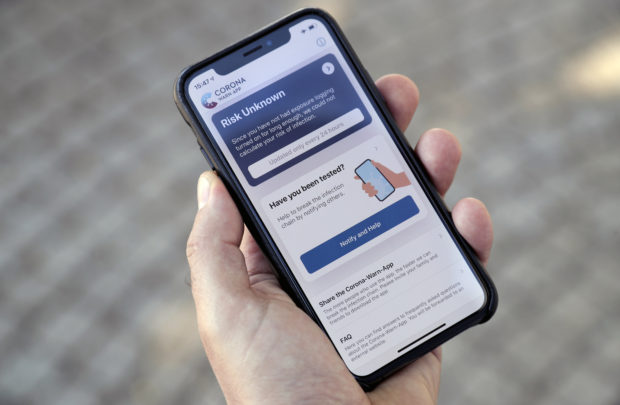
BERLIN — Germany launched a coronavirus tracing app Tuesday that officials say is so secure even government ministers can use it.
Smartphone apps have been touted as a high-tech tool in the effort to track down potential COVID-19 infections. Experts say finding new cases quickly is key to clamping down on fresh clusters, especially as countries slowly emerge from lockdowns and try to avoid a second wave of infections and deaths.
But governments in privacy-conscious Europe have run into legal and cultural hurdles trying to reconcile the need for effective tracing with the continent’s strict data privacy standards.
Germany, where a person’s right to their own data even after death is rooted in the constitution and even protects the privacy of convicted criminals, has proved a particular challenge.
The German government insists users will have full control over their data. There is no requirement to download the app. It’s up to the user to confirm their test results and trigger the process of informing possible contacts that they might in turn have been exposed.
Still, concerns remain.
A poll this month published by public broadcaster ARD found that slightly more Germans — 42% — said they would use the tracing app than the 39% who said they wouldn’t. The rest either said they didn’t have a smartphone or hadn’t made up their mind.
The telephone poll of 1,005 had a margin of error of up to 3 percentage points.
Klaudia Kruczkiewicz, on her way to Berlin’s Friedrichstrasse train station, said using a smartphone to scan her surroundings felt “a bit creepy,” but wouldn’t rule out signing up.
“First I’d need to see how it works,” she said. “But otherwise, at the moment, I’m keeping my distance. I always wear a mask. I don’t need this app.”